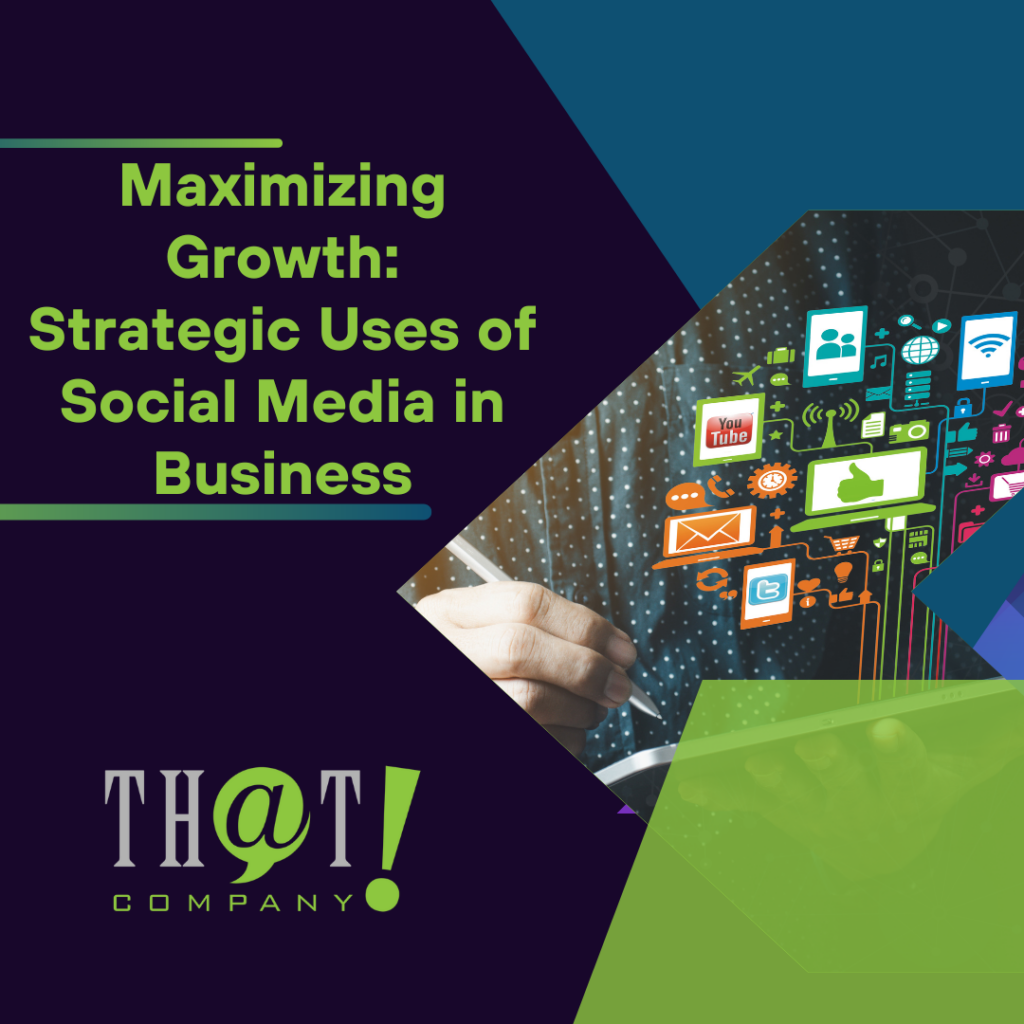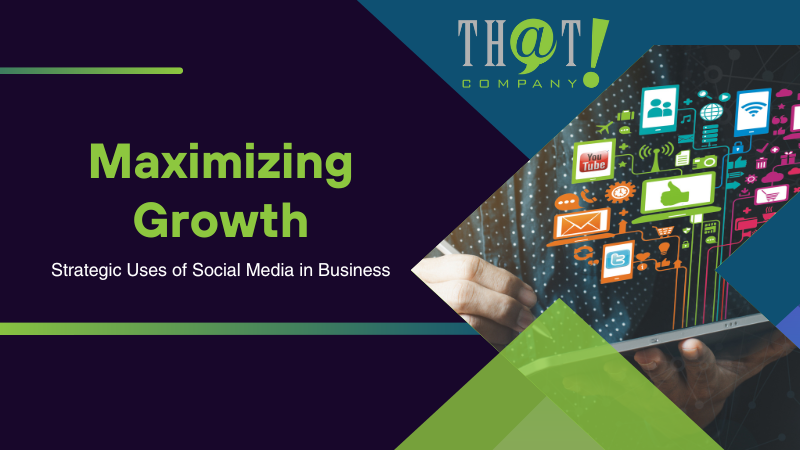
In today’s digital marketplace, the uses of social media in business are pivotal to success. Social media channels offer unparalleled avenues for customer engagement, brand building, and direct consumer communication. The ability to leverage these platforms can result in expansive reach, enhanced customer loyalty, and increased revenue. In this article, we explore the strategic applications of social media that businesses can employ to achieve these outcomes. We’ll cover everything from expanding your reach with clever content strategies to fostering deep customer relationships and selecting the right platforms for your audience.
Key Takeaways
- Social media provides businesses with tools to increase brand awareness, expand global reach, and build customer loyalty through consistent branding and tailored content for target demographic groups.
- Selecting the right social media platforms is essential for effective reach, with platform choice informed by target audience demographics and competitor strategies, along with a consistent and tailored presence across chosen channels.
- Key to social media success is creating and curating engaging content, maintaining a strategic posting schedule, monitoring analytics for performance insights, leveraging user-generated content, collaborating with influencers, and addressing negative feedback professionally to preserve brand reputation.

The Power of Social Media for Businesses
Business social media has become an essential tool for businesses in today’s digital age. With over 4.74 billion people using social media platforms, businesses have the opportunity to expand their reach and connect with a global audience through their social media accounts on various social media channels, including social media sites. By utilizing these channels, businesses can show that they are operational and ready to serve, while maintaining a consistent brand image and voice, essential for professionalism.
Businesses utilize social media to increase brand awareness by:
- Creating and sharing engaging content
- Encouraging positive audience interaction
- Understanding the audience through social media interactions
- Tailoring content to their preferences
This is key for businesses to better target their marketing efforts.
Expanding Your Reach
Expanding your reach on social media is about more than just posting content; it involves strategic planning and implementation. One effective strategy is to use hashtags. Hashtags are used on social media for content searches, making your content more discoverable online. Using specific hashtags can help increase a brand’s visibility and attract a broader audience.
Another effective way to expand your reach on social media is through social ads. These offer an inexpensive way for businesses to promote themselves with powerful targeting options, allowing messages to be tailored for different audience groups. Additionally, a high level of engagement on social media can lead to increased visibility for a business’s content.
Building Customer Relationships
Social media platforms are not just for promoting products or services; they are also crucial for building and maintaining customer relationships. Engaging with the audience on social media fosters trust and loyalty amongst consumers. Social media offers a direct line of communication with customers, allowing businesses to respond to comments, share content, and engage in conversations via live streams and interactive polls.
Negative feedback is inevitable, but it’s how businesses respond to it that matters. Personalizing responses to negative feedback on social media is crucial as it shows empathy and reinforces that businesses value their customers. By effectively managing customer relationships on social media, businesses can foster customer loyalty and enhance their brand reputation.

Choosing the Right Social Media Platforms
With a myriad of popular social media platforms available, choosing the right one for your business is crucial. Businesses must understand their core target audience to select the best social media platform, considering demographics such as age and gender. Different social media platforms cater to varying content types; Facebook and Instagram are effective for B2C engagement, while LinkedIn is better suited for B2B targeting on social platforms.
In addition to understanding their target audience, businesses should also research their competitors. This can guide them towards the most engaging social media platforms and identify how users interact with content. Instead of spreading content thinly across all platforms, businesses should be selective to ensure an effective use of time and resources. Some strategies to consider include:
- Focusing on a few main platforms where your target audience is most active
- Creating a consistent brand presence across these platforms
- Tailoring content to each platform’s unique features and audience preferences
By adopting a social media strategy, businesses can maximize their impact and reach their target audience more effectively through social media campaigns.
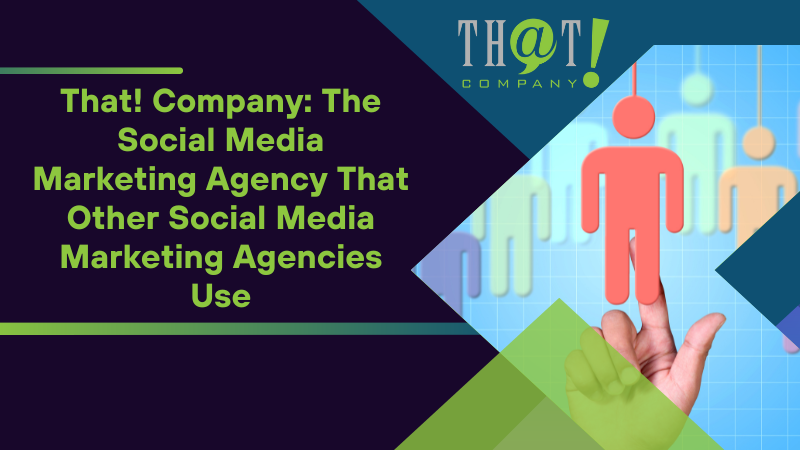
That! Company: The Social Media Marketing Agency That Other Social Media Marketing Agencies Use
Navigating the complexities of social media marketing can be challenging, but That! Company is here to help. Recognized as the premier white label creative agency chosen by other social media marketing agencies, That! Company specializes in providing white label Social Media Marketing services to agencies. This enables them to offer expert social media solutions under their own brand names, underscoring That! Company’s unique position as the industry’s top provider for agencies.

Strategies for Effective Social Media Marketing
Implementing effective strategies is key to maximizing the benefits of social media marketing. Businesses should:
- Avoid hard-selling tactics; instead, focus on sharing engaging and informative content that builds the brand and fosters a sense of community.
- Create compelling visual content, utilizing high-quality imagery and videos, to captivate the target audience and make the campaigns more visually appealing.
- Incorporate dynamic and data-driven marketing techniques like those offered by That! Company to lead to increased traffic, better SEO, and stronger customer engagement.
Moreover, developing personalized ad campaigns, organizing contests or giveaways to boost interaction, and considering partnerships with influencers can further reach marketing objectives.
Content Creation and Curation
Content is king when it comes to social media marketing, and creating and curating quality social media posts is crucial. Visual content, such as:
- posts
- stories
- lives
- reels
- IGTV on Instagram
Enhanced by tools like Canva’s templates, attracts more engagement and helps stop social media users mid-scroll. Providing content that offers solutions, entertainment, education, or inspiration can resonate with the audience and authentically reflect the brand identity.
In addition to creating original content, businesses can also curate content from other sources. To create content efficiently, they can employ tools such as Freepik, Canva, and Grammarly, along with leveraging user-generated content (UGC), saving time and providing a diverse array of content. It’s also essential for businesses to maintain consistent branding and authenticity in their social media communications to attract loyal customers and ensure brand credibility. You can use white label social media content to maintain a consistent and professional online presence without the hassle of creating content in-house.
Consistency and Scheduling
Consistency and scheduling are crucial elements of an effective social media marketing strategy. Creating a content calendar helps businesses plan and track their upcoming social media content, providing a visual tool to map out when and on which platforms to post content. Consistency on social media platforms is crucial for projecting a consistent brand image and reinforcing the brand’s message to the audience.
Maintaining a consistent posting schedule helps build brand awareness and keeps the business fresh in the minds of followers, which is essential for ongoing engagement. To maximize messaging impact, campaign content should be consistent across different platforms, using coordination and scheduling to reinforce the brand message through repetition.
Monitoring and Analytics
Monitoring and analytics play a crucial role in assessing the performance and effectiveness of social media marketing campaigns. Social media analytics are essential for tracking the performance of posts and campaigns to understand what resonates with the audience and to make data-driven adjustments to the strategy. Tools like Google Analytics and HubSpot provide detailed metrics on social media activities, such as converted leads, traffic sources, demographic information, and individual page traffic.
In addition to monitoring performance, businesses can also streamline their campaign management using scheduling tools like Hootsuite and CoSchedule, which offer built-in analytics features. Employing social listening techniques aids in understanding customer sentiments and enables businesses to respond effectively to feedback, which is a critical aspect of social media analytics.

Leveraging User-Generated Content
User-generated content (UGC) is a powerful tool in social media marketing. It enhances trust and loyalty in eCommerce brands, with 80% of consumers reporting that UGC greatly influences their purchasing decisions. Implementing UGC strategies has helped certain brands experience up to a 17.27% increase in conversion rates.
Customer engagement is bolstered by UGC, with certain brands witnessing over 4% of their website visitors interact with UGC features. UGC provides social proof and digitized word-of-mouth recommendations that are crucial in attracting new potential customers. Visual UGC, like images and videos, serves as powerful endorsements, encouraging shopper conversions.
Reposting UGC helps to keep the content calendar full while also acting as continual social proof. Positive UGC can diminish the impact of negative feedback, helping to protect the brand’s image.

Collaborating with Influencers
Influencer collaborations can significantly boost a business’s social media marketing efforts. Collaborating with social media influencers can help businesses:
- Expand their reach
- Enhance their brand’s reputation by tapping into the influencer’s attentive audience
- Influence followers’ purchasing decisions, thereby impacting a business’s sales.
When considering influencer partnerships, businesses should focus on:
- Engagement and relevance rather than solely on follower count
- The effectiveness of influencer marketing can vary by region, with some areas showing higher rates of consumer actions based on influencer recommendations
- Allowing influencers to exercise creative control can result in more genuine and effective promotional content that resonates with their audience.
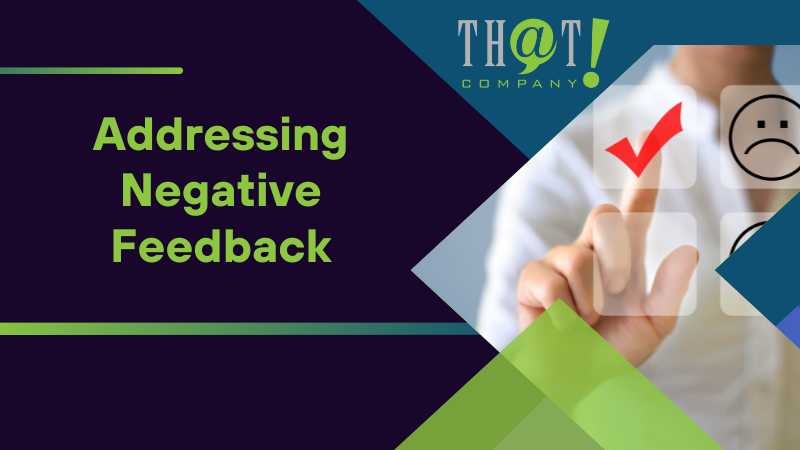
Addressing Negative Feedback
Addressing negative feedback is a crucial part of maintaining a strong social media presence. Maintaining politeness in responses to negative comments is crucial to preserve the brand’s reputation and customer relationships. A sincere apology can be the first step in resolving a conflict, even if the business disagrees with the customer’s point of view. You should consider using white label reputation management to improve your client’s online image and manage reviews effectively, all while maintaining your brand’s identity and credibility.
Businesses should:
- Avoid making promises they cannot keep
- Analyze the problem before offering solutions to unhappy customers
- Provide clear explanations to customers about the causes of their issues and the steps taken to resolve them
- Handle conflicts privately, such as through direct messages or customer support, to protect a brand’s public image and allow for a more effective resolution.
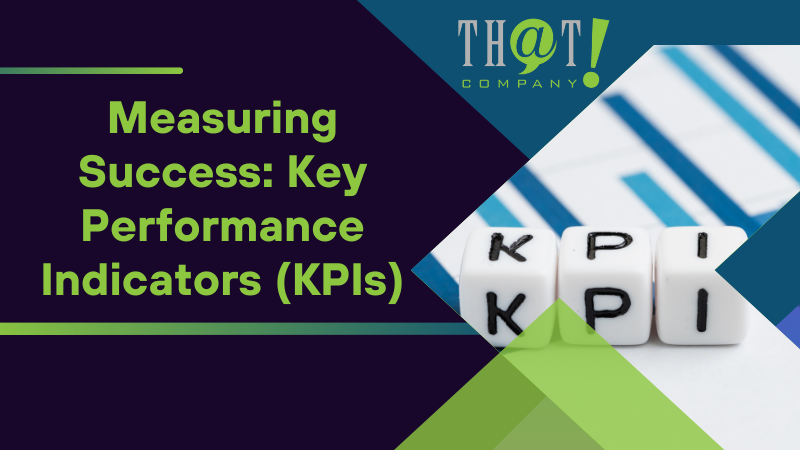
Measuring Success: Key Performance Indicators (KPIs)
Measuring success in social media marketing is as crucial as implementing effective strategies. Key Performance Indicators (KPIs) that can help businesses align their social media marketing campaigns with overall marketing objectives and accurately measure their success include:
- Total Reach
- Total Impressions
- Subscribers or followers’ growth
- Likes
- Comments
- Traffic performance
Establishing smart goals and tracking the right metrics in influencer campaigns are crucial.
Analytics tools such as Google Analytics are instrumental in tracking and measuring traffic goals, helping businesses to gather actionable data to measure success against their KPIs. Analyzing data from KPIs enables businesses to research and identify new strategies to expand their audience and enhance sales, allowing for continuous improvement in social media strategies.
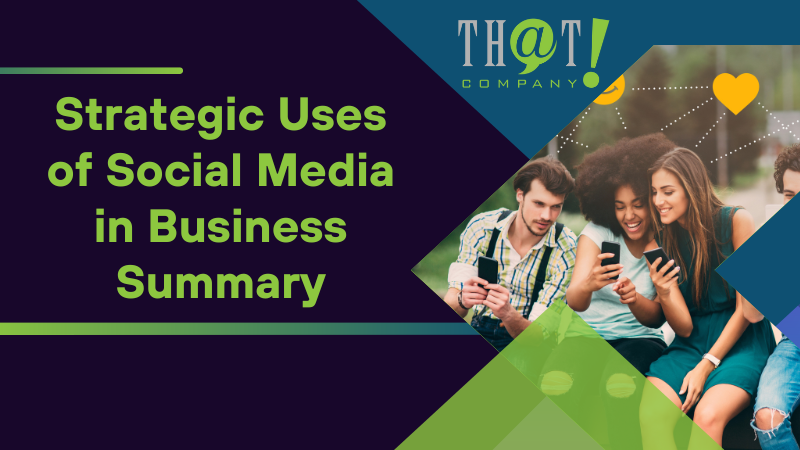
Summary
In conclusion, social media is an indispensable tool for businesses in today’s digital age. From expanding reach and building customer relationships to collaborating with influencers and addressing negative feedback, effective use of social media can greatly enhance a business’s growth and success. With the right strategies, analytics tools, and guidance from experts like That! Company, businesses can harness the power of social media to achieve their marketing objectives and create a strong, authentic brand identity.

Frequently Asked Questions
What role does social media play in business?
Social media plays a crucial role in business by driving growth, fostering deep connections with the audience, and increasing brand awareness. It also helps in creating a relatable brand personality and targeting marketing efforts effectively.
How can businesses expand their reach on social media?
To expand their reach on social media, businesses can use hashtags, social ads, and create engaging content to encourage audience interaction. By implementing these strategies, businesses can effectively broaden their presence and engagement on social media.
Why is consistency and scheduling important in social media marketing?
Consistency and scheduling are important in social media marketing because they help maintain a consistent brand image, reinforce the brand’s message, and build brand awareness. This keeps the business fresh in the minds of followers.
How can businesses address negative feedback effectively?
To address negative feedback effectively, businesses should maintain politeness, offer sincere apologies, provide clear explanations, and handle conflicts privately. This can help in resolving the issue and maintaining a positive reputation.
What are Key Performance Indicators (KPIs) in social media marketing?
Key Performance Indicators (KPIs) in social media marketing are essential metrics for measuring the success of your social media campaigns, including Total Reach, Total Impressions, growth in subscribers or followers, likes, comments, and traffic performance.

